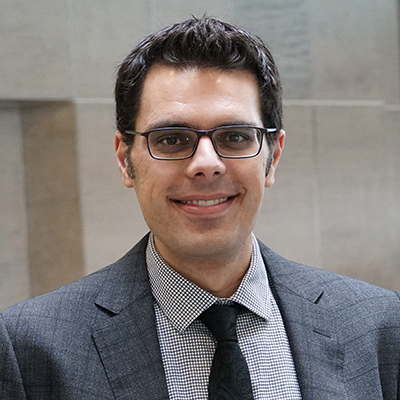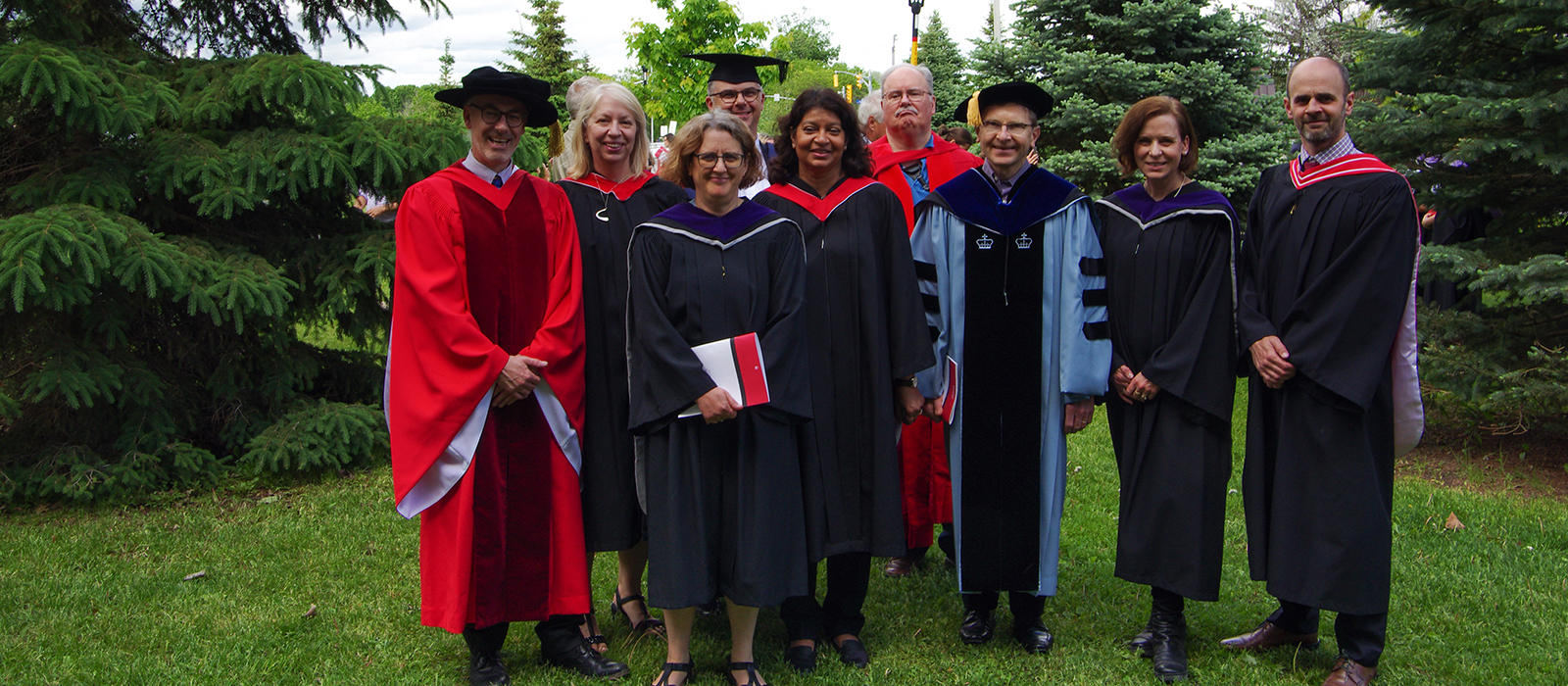Our Award-Winning Faculty
Faculty in the Department of Political Science engage in a wide range of research activities. Some of our many research areas include protecting refugees and developing solutions on forced migration; immigrant women’s experiences in Canada; Canadian politics, parliament, and the politics of food; foreign policy and defence issues like understanding the Trudeau government’s foreign policy, and examining the military strategies of Canada and our closest allies; and, area studies like the implications of Brexit, latest developments in Latin America, and what’s next for the Putin regime in Russia.
To see all that the department offers in research expertise please scroll down to our recent award winners, and check out our faculty bios.

Christina Gabriel
2024 Carleton University Research Achievement Award
2021 SSHRC Partnership Engage Grant
2024 Carleton University Research Achievement Award:
“The Care Crisis and International Student Mobility”
This project focuses on how immigration policy is deployed to address health worker shortages. Specifically, it examines how international nursing students negotiate the intersection between the terms of their entry to Canada as students on a study permit and their transition to the health labour force through mechanisms such as the post-graduate work permit. In doing so the project will identify systemic barriers migrants encounter in the labour market and evaluate available policy options.
2021 SSHRC Partnership Engage Grant:
“Working Through the Pandemic – The Experiences of Immigrant Women”
This research project focuses on how the COVID-19 pandemic affected immigrant women’s labour market participation and their ability to access the Federal Government’s Economic Response Plan. Professor Gabriel’s community partner is the Ottawa Local Immigration Partnership (OLIP), a group of 60 immigrant agencies, that has been documenting COVID-19 health-related vulnerabilities in relation to immigrants. Gabriel wants to add to this research by examining immigrant women’s work experiences during the pandemic and assessing how the Economic Response Plan promoted or hindered social resilience. Documenting who is included and excluded from Federal economic programs has the potential to identify gaps between stated program aims and the real experiences of recent immigrant women.

Jeff Sahadeo
2024 Carleton International- International Research Seed Grant
2022 SSHRC Connection Grant
2019 SSHRC Insight Development Grant
2024 Carleton International- International Research Seed Grant:
“Rivers and the Environment in the Republic of Georgia: Activism and the Everyday”
Rivers act as connective tissue, linking water to land, lakes to seas, marine life to shore life. The Republic of Georgia’s 26 000 rivers are central to economic and everyday life, power relationships and local, regional and national identities. This project will investigate critical aspects of Georgian rivers, combining natural and human worlds. A broad interdisciplinary team from Carleton University and Ilia State University in Tbilisi, Georgia, will integrate scientific and community knowledge into environmental humanities and social sciences research. Jeff Sahadeo and Ketevan Gurchiani (director, Center for Anthropology Research, Ilia State University) will lead a team to conduct multivector work at two field sites: Dighomi Meadows, the last remaining floodplain in the capital, Tbilisi; and the Rioni River, where sturgeon, on the brink of global extinction, still spawn.
2022 SSHRC Connection Grant:
“Displacement in Wartime: Routes and Destinations, Space, Place and Pluralism: Russia’s Invasion, Ukrainian Actions and Consequences for Europe and Eurasia”
The ongoing crisis of displaced communities, migrant workers, and trafficked persons from within Ukraine and Russia continues to preoccupy policymakers at national and local levels, as well as international and community NGOs and ordinary citizens. This Connection Grant project bridges policymakers, academics, government and NGO partners to those affected directly by the conflict. A long overdue trend in the field, we turn to refugee participation to consider those displaced as active agents in their trajectories. It is critical that their voices be amplified. Our project includes scholars at risk and emerging scholars displaced by the war, colleagues from Europe and Ukraine, as well as displaced persons. We investigate the openings and the challenges for diversity, tolerance and pluralism as refugees and IDPs—themselves not an undifferentiated mass—leave their homes and interact with host societies.
2019 SSHRC Insight Development Grant:
“White Water or White Coal? Rivers and Society in Tsarist and Soviet Georgia”

Cati Coe
2023 SSHRC Connection Grant
2023 SSHRC Connection Grant:
“What is Work? Rethinking the Formalisation of Domestic Work as the Pathway to Dignity”
In 2011, to much acclaim and after much activism by domestic worker organisations, the International Labour Organisation (ILO) passed a new and historic Domestic Workers Convention (no. 189) and a Domestic Workers Recommendation (no. 201), aimed at improving the conditions for domestic workers and recognising them as workers, a formal legal status that they had often been denied in national labour legislation. An international research workshop was held in November 2023 at Carleton University to evaluate the promises and impact of the convention on domestic workers’ everyday experiences and organising efforts.

Erin Tolley
2023 Carleton Research Achievement Award
2023 SSHRC Connection Grant
2022-2028 SSHRC Insight Grant
2022 SSHRC Partnership Engage Grant
2023 Carleton Research Achievement Award:
“Black Canadians in Electoral Politics”
There are nearly 1.5 million Black Canadians in Canada, but we know very little about their political presence because research tends to rely on aggregate categories like “visible minority.” In collaboration with Operation Black Vote Canada, this multi-method project is the first comprehensive study of the experiences of Black Canadians in electoral politics. Our research will identify factors that promote and impede political engagement, and will make recommendations to increase political inclusion in Canada.
2023 SSHRC Connection Grant:
“Black Canadians in Politics: Engaging New Audiences Through an Audio and Digital Archive”
This innovative outreach initiative mobilizes insights generated from in-depth interviews and a national survey of Black Canadian candidates and officeholders. Working with our partners, Operation Black Vote Canada and the Samara Centre for Democracy, we are developing an interactive website, documentary podcast series, teaching materials, and public-facing resources that will engage new audiences, including political parties, policymakers, journalists, and voters, in conversations about electoral representation.
2022-2028 SSHRC Insight Grant
“Improving the Collection of Racial Data in Research on Politics”
This multi-method project examines how questions, classifications, and survey design influence what we know about race and political behaviour in Canada. Through an inventory of existing research practices, a novel survey experiment, and a series of focus groups, we are: documenting how race has been conceptualized, operationalized, and measured; investigating how research design influences data collection, quality, and responses; and understanding how racialized Canadians interpret survey questions about race. Our findings will generate recommendations for the collection of high-quality, reliable, and disaggregated data on race in research and policymaking in Canada.
2022 SSHRC Partnership Engage Grant:
“Black Canadians’ Participation and Inclusion in Electoral Politics”
Working in collaboration with Operation Black Vote Canada, this Partnership Engage project will create an archive highlighting the experiences and contributions of Black Canadians who have run for and served in elected office at all levels of government in Canada. These insights will be the basis for a set of training materials for prospective candidates and help us identify strategies to increase the representation of diversity in politics.

Mira Sucharov
2023 SSHRC Partnership Engage Grant (with Omar M. Dajani)
2019 Discovery Centre Fellowship
2019 FPA Teaching Development Fund
2023 SSHRC Partnership Engage Grant:
“Public Persuasion on Palestinian Refugee Return: A Microhistory of a Vacant Lot in Jaffa”
The project will develop and produce a podcast titled “The Vacant Lot”, which explores the past, present, and potential future of the city of Jaffa by focusing on the vacant lot at 80 Kedem Street. The site, overlooking the sea in one of the most rapidly gentrifying neighborhoods in Israel, is where the home of Omar Dajani’s family once stood, and municipal records suggest that after 1948 it served as a residence for successive families of Jewish immigrants to the new state of Israel. The project is conducted in partnership with the NGO Zochrot.
2019 Discovery Centre Fellowship
2019 FPA Teaching Development Fund award for her project “Encounters with Privilege: from Society to the Classroom”

Laura Macdonald
2022 SSHRC Connection Grant
2018-2025 SSHRC Insight Grant
2018 Award for Research Excellence
2022 SSHRC Connection Grant:
workshop “Transnational Activism in North America”
2018 SSHRC Insight Grant:
“Transnational Civil Society Linkages in North America”
This research project examines the nature of transnational cooperation between civil society actors in Canada, the United States and Mexico. Researchers will analyze diverse forms of cross-border cooperation and conflict around three themes: labour rights, migration, and human rights, in order to understand how transnational cooperation has evolved over time, and how transnationalism differs across issue areas. This research on the North American case will yield insights that will illuminate the nature of transnationalism in the contemporary global economy and contribute to public debate about the future of the region.
2018 Award for Research Excellence, Faculty of Public Affairs, Carleton University

Achim Hurrelmann
2024 FPA Research Excellence Award
2019-2024 SSHRC Insight Grant
2023 SSHRC Connection Grant
2019-2024 SSHRC Insight Grant:
“The Reconfiguration of Canada-Europe Relations after Brexit”
The research will examine how Brexit – the process of negotiating and implementing the withdrawal of the United Kingdom from the European Union – affects Canada’s transatlantic relationship with various European partners. It focuses on four aspects of the Canada-Europe relationship: (a) trade and investment; (b) security and defence; (c) environment and energy; as well (d) as political relations and identities. Please see the project website for more information.
The research will be conducted in cooperation with three other leading scholars of Canada-Europe relations, Petra Dolata (University of Calgary), Patrick Leblond (University of Ottawa) and Frédéric Mérand (Université de Montréal). The project has been awarded a grant of $299,673 for a five-year period (2019-2024).
2023 SSHRC Connection Grant to support the European Community Studies Association-Canada (ECSA-C) Biennial Conference 2024. The conference will take place May 23-25, 2024 at Carleton.

Andrea Chandler
2022 SSHRC Knowledge Synthesis Grant
2022 SSHRC Knowledge Synthesis Grant:
“Alleviating Loneliness, Encouraging Friendship: The Role That Political Society Can Play”
This project examines whether political society (governments and political leaders) can influence the formation of friendships and the alleviation of loneliness within individuals in society. The relationship between politics and friendship has been explored by political philosophers since ancient times, and democracy itself is often conceptualized as a relationship of friendship between citizens. And yet, social scientists have long been concerned with the ways in which modern society isolates citizens from each other, rather than stimulating or reinforcing friendships.

Jonathan Malloy
2022 SSHRC Insight Grant
2022 SSHRC Insight Grant:
“Parliamentary Committees: Portals Between State and Society”

James Milner
2022 Gerda Henkel Foundation Grant
2022 Gerda Henkel Foundation Grant to support a comparative study on the politics and process of refugee leadership in the global South, with a specific focus on Latin America and East Africa.
This research is a collaboration between R-SEAT (Refugees Seeking Equal Access at the Table) and LERRN (the Local Engagement Refugee Research Network), with the active cooperation of the RLRH(Refugee-led Research Hub) in East Africa and CAPRS (the Centre for Asia Pacific Refugee Studies) in the Asia Pacific region. The project builds on LERRN’s recent work with its partners on the impact of refugee-led organizations in East Africa and the Middle East, and seeks to inform research, policy and practice on the conditions that enable or constrain refugees from demonstrating leadership in navigating local, national and regional power structures to influence the development and implementation of policy and programmes intended to affect the daily lives of refugees. This 18-month project will emphasize the active and equal participation of researchers with lived experience of displacement in developing the research methodology, conducting research, producing knowledge, and mobilizing knowledge to influence research, policy and practice.

Peter Andrée
2021 SSHRC Insight Development Grant
2019 Carleton University Research Achievement Award
2021 SSHRC Insight Development Grant:
“Reaching for net-zero carbon emissions while reckoning with settler-colonialism: the case of dairying in Aotearoa New Zealand”
Peter Andree and his collaborators’ project will examine how reducing greenhouse gas emission in agriculture to address climate change can be reinforced by processes of reconciliation and redress between Indigenous and non-Indigenous peoples.

Aaron Ettinger
2024 FPA Teaching Excellence Award
2021 SSHRC Insight Development Grant
2021 SSHRC Insight Development Grant:
“Surviving Trump: Protecting Canada’s Interests When America’s First”
This project will cover two major areas of Canada-U.S. cooperation that are fundamental to Canada’s security and prosperity: North American trade and international security cooperation through NATO, both of which were imperilled by the Trump presidency.

William Cross
2020 FPA Research Excellence Award
William Cross received the 2020 FPA Research Excellence Award for his research on the different strata of political parties: members, activists, donors, candidates, political operatives and Parliamentarians.

Elinor Sloan
2020 SSHRC Insight Grant
2020 SSHRC Insight Grant:
“National Shipbuilding Strategies: A Comparative Analysis”
The research will look at how Australia, Britain, Canada and New Zealand go about ensuring their navies (and in Canada’s case coast guard) have the ships they need to carry out their work. Many of Canada’s not so distant security concerns – increased Russian and Chinese naval activity in the North Atlantic and South China Seas respectively, and the growing interest of those countries and others in the Arctic – demand naval vessels. But naval shipbuilding is hugely expensive, in the order of billions of dollars, and takes place over years and decades. The strategy a country follows matters. This research will examine the shipbuilding path that Canada has chosen, and highlight some key lessons from our allies, with a goal of determining how best to build and sustain a national security asset that is growing in importance.

Sophie Marcotte Chénard
2019-2024 SSHRC Insight Development Grant
2019 SSHRC Insight Development Grant:
“Presences of the Past: Conceptual History as a Critical Tool in Political Theory”
Using the tools of the Begriffsgeschichte or conceptual history, an approach developed by the German historian Reinhart Koselleck that traces the evolution and uses of political and social concepts, the research examines how concepts have changed, which helps us gain a better understanding of how these concepts are employed now. An important aspect of this project is to demonstrate the value of studying changes in our political and social vocabulary by combining the resources of conceptual history and political theory.
The escalation of the vocabulary of crisis in political and social discourse prompts comparisons with a period in which the talk of the crisis reached its peak: the interwar period in Europe. In examining the nature and political implications diagnoses of crisis in German and French political and philosophical discourse, the aim is to uncover the role that this vocabulary of crisis and uncertainty plays in the analysis of politics. In that regard, this project purports to contribute to a theoretical reflection on the foundations of politics in uncertain times.

Fiona Robinson
2019-2024 SSHRC Insight Development Grant
2019 SSHRC Insight Development Grant:
“Interrogating Canada’s Feminist Foreign Policy Narrative: Historical Context and Contemporary Logics”
The project examines the shift towards a ‘feminist’ orientation in foreign policy under the Trudeau government. The research will ask how we can make sense of this new narrative in the historical context of prior ethical or principled foreign policy approaches in Canada, while also exploring the logics of gender, race and neo-colonialism that frame this new feminist approach. While it is a critical study, it is interested in whether feminist foreign policy – in Canada and beyond – can create spaces for the development of feminist solidarities across borders.

William Walters
2019-2022 Faculty of Public Affairs Research Excellence Chair
2019-2022 Faculty of Public Affairs Research Excellence Chair
2018 Distinguished Scholar, Science, Technology and Art in International Relations (STAIR) section of the International Studies Association
